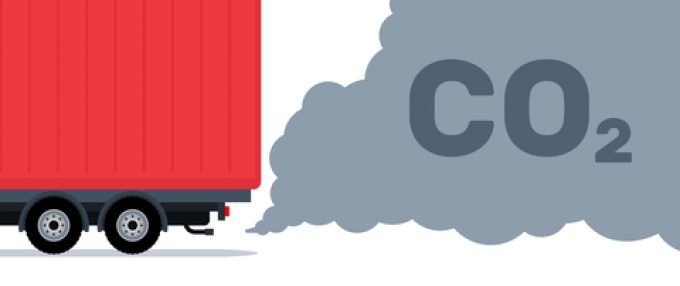COP-out: 'one of the most chaotic in recent memory' draws to a close
Distressing news: what began as a platform for a fruitful and productive global discussion has ...
UPS: MULTI-MILLION PENALTY FOR UNFAIR EARNINGS DISCLOSUREWTC: PUNISHEDVW: UNDER PRESSUREKNIN: APAC LEADERSHIP WATCHZIM: TAKING PROFITPEP: MINOR HOLDINGS CONSOLIDATIONDHL: GREEN DEALBA: WIND OF CHANGEMAERSK: BULLISH CALLXPO: HEDGE FUNDS ENGINEF: CHOPPING BOARDWTC: NEW RECORDZIM: BALANCE SHEET IN CHECKZIM: SURGING
UPS: MULTI-MILLION PENALTY FOR UNFAIR EARNINGS DISCLOSUREWTC: PUNISHEDVW: UNDER PRESSUREKNIN: APAC LEADERSHIP WATCHZIM: TAKING PROFITPEP: MINOR HOLDINGS CONSOLIDATIONDHL: GREEN DEALBA: WIND OF CHANGEMAERSK: BULLISH CALLXPO: HEDGE FUNDS ENGINEF: CHOPPING BOARDWTC: NEW RECORDZIM: BALANCE SHEET IN CHECKZIM: SURGING

Freight forwarders could face ‘carbon bombs’ in their Scope 3 emissions reporting, to be rolled out next year, over high emissions at truck manufacturers.
Before it has even begun, the rollout of Scope 3 reporting is beset by emissions scandals, according to green lobby group Transport & Environment (T&E).
Like car manufacturers, trucking’s main source of emissions is the fuel burned, which can make up as much as 99.8% of their total. But previously, neither truck manufacturers, trucking companies or freight forwarders have been under any obligation to report these indirect Scope 3 emissions.
Mercedes-Benz and DAF do not report on Scope 3 emissions currently, but T&E expects this will lead to some nasty surprises, estimating that, once accurate figures are reported in accordance with EU Corporate Sustainability Reporting Directive (CSRD) requirements, they could increase by 21,783%, and 161,083%, respectively.
Because of the interconnected nature of Scope 3 emissions, which cover more than just the CO2 emitted under a company’s own roof, a sudden bump in truck emissions will have a massive impact on forwarders’ Scope 3 figures, and the services they are able to offer their customers. It will also further highlight the comparative attractiveness of maritime shipping, from an emissions standpoint.
“There is a key difference in the emissions reported by truck makers and freight forwarders. While the former include lifetime CO2 emissions from the vehicles they sell in one year (scope 3.11 “Use of sold products”), the latter consider only emissions in the reporting year from the vehicles they own (scope 1 “Direct emissions”) or lease (mostly scope 3.4 “Transportation and distribution”) for their freight operations,” Luca Poggi, T&E analyst, explained to The Loadstar.
“Freight forwarders can use different data sources on vehicles’ fuel consumption and yearly mileage when estimating emissions. This means that, if they rely on what truck makers disclose, they are likely to underestimate their emissions as well.”
But truck manufacturers’ incentive to under-report their Scope 3 emissions to secure investment, means T&E expects the rollout will be accompanied by VW-style emissions scandals, and suggests that Volvo and Iveco, which currently are reporting on Scope 3, are already underestimating, by 20% and 172% respectively.
“It is fair to say that the Scope 3 reporting is a proper scandal,” T&E eMobility analyst Yoann Gimbert told The Loadstar.
“Both car makers and truck makers are underestimating largely their Scope 3 emissions, and this likely gives them competitive advantage on the financial markets.”
T&E sustainable finance director Xavier Sol added: “Truck makers are currently one of the most carbon intensive investments on the market. As the true extent of truck makers’ Scope 3 emissions becomes clear, the industry could be in for a serious shock. To avoid being seen as portfolio carbon bombs, truck makers need to switch to zero-emissions as quickly as possible.”
Truck OEMs are not the only companies ill-prepared for Scope 3, which almost always eclipses Scopes 1 and 2 by enormous margins. Discussing DFDS’s carbon-neutrality plans, head of decarbonisation pathway Lina Barsøe admitted to The Loadstar: “We don’t have any plan to include Scope 3 emissions.”
Comment on this article